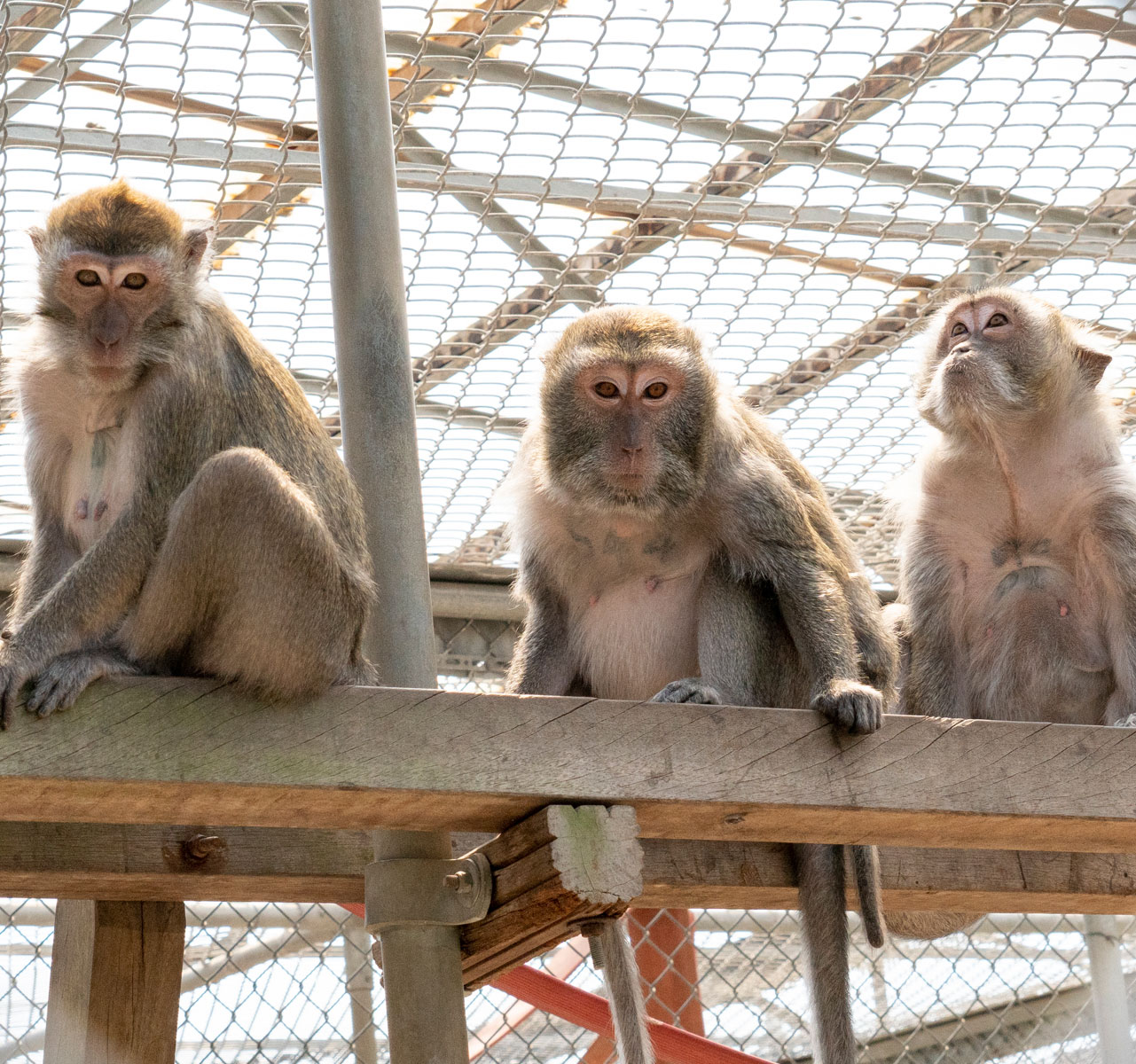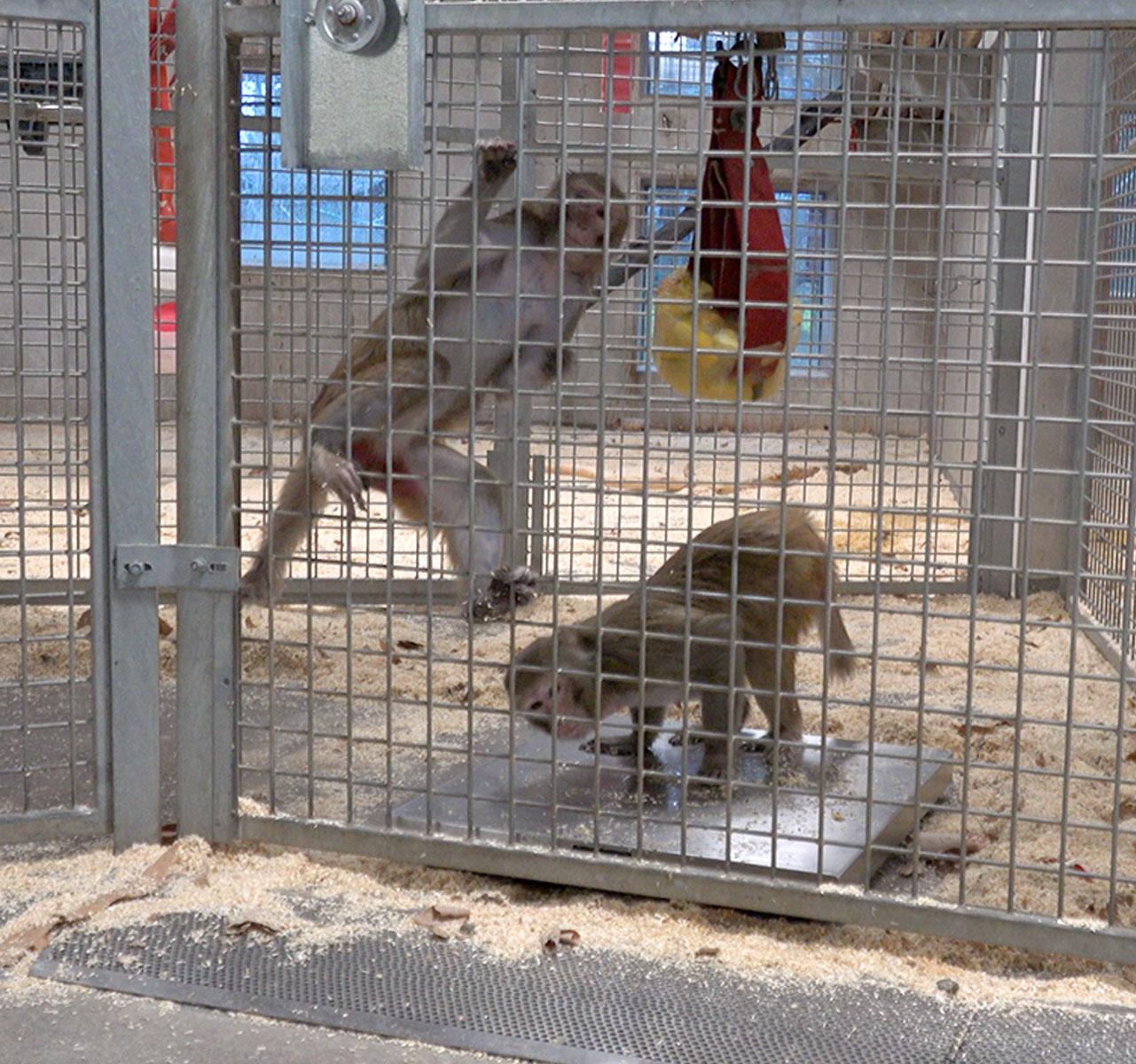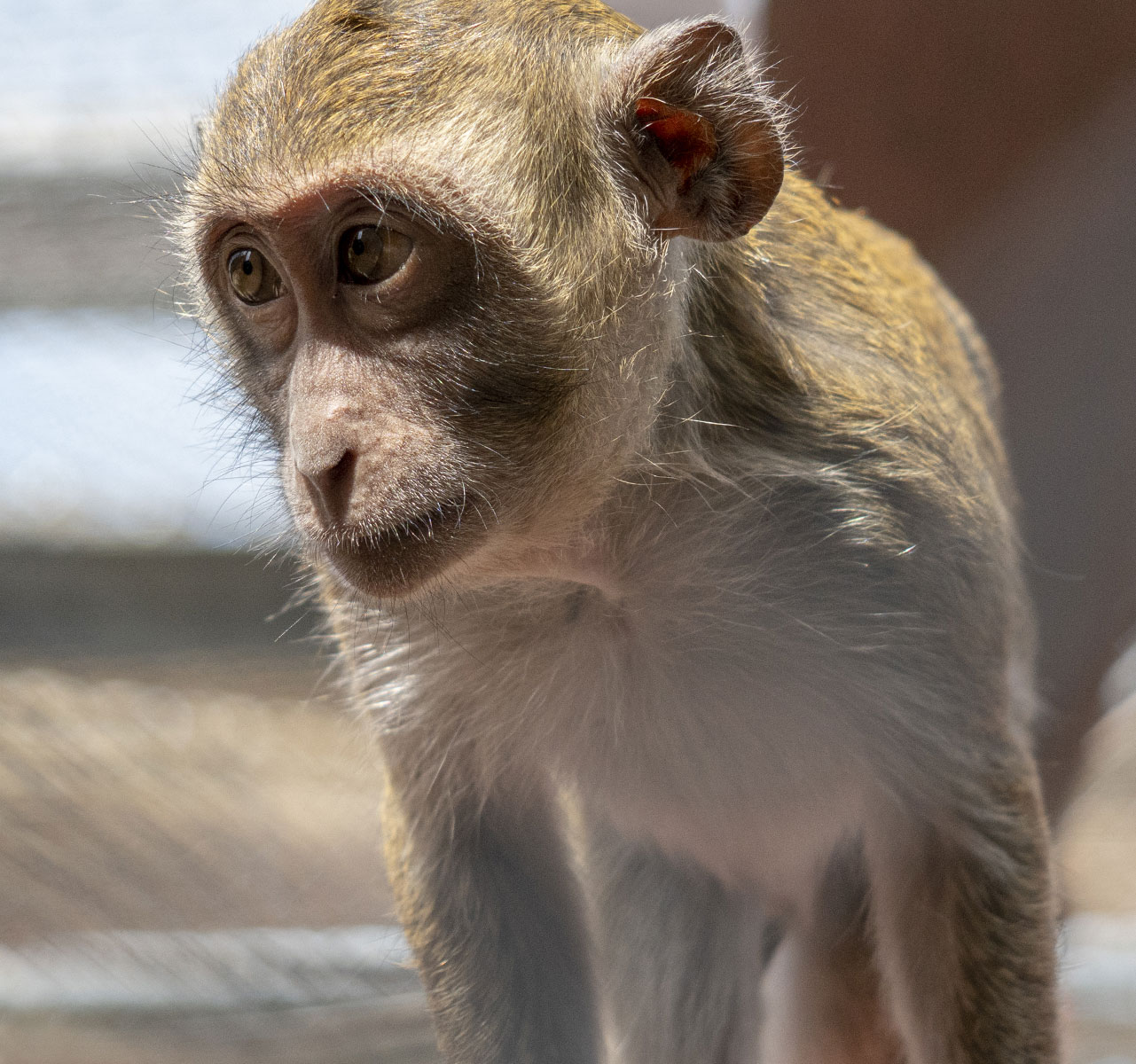Ethology
Monkeys are social animals that both compete and cooperate with their group members. Understanding the dynamics in behaviour of monkeys is not only important for scientific behaviour research, but also to manage our breeding and experimental colonies. To improve our knowledge, we work together with a group of behavioural scientists from the University of Utrecht.
Living in natural groups enhances both welfare and female reproduction

It is currently common practice to house non-human primates at biomedical research facilities, e.g., rhesus macaques, in social groups. To enhance female reproductive success, peer groups are formed. In these breeding groups, infants are taken from their mother at an age of ten months and housed with animals of approximately the same age. Yet for welfare, leaving offspring with their mother and allowing multigenerational groups including families is preferred. This argues that a trade-off between female reproductive success and welfare exists. In this retrospective study we investigated the differences in female rhesus macaque reproductive success between peer groups and multigenerational groups. Our results show that females in multigenerational groups have more births per year and have higher offspring survival compared with those in peer groups. Thus, housing rhesus macaques in multigenerational groups provides a win-win situation, rather than a trade-off, in which female reproductive success and animal welfare can simultaneously be optimized.
TO TOP ^ < BACK << HOME
Monkey weight watching

Photo: Animal Behaviour and Cognition, Utrecht University
Captive monkeys have an easier life than their wild counterparts: they have abundant food and do not have to work hard to get it. This can lead to unwanted overweight. We explored whether overweight can be predicted and contained.
Individual variation in non-human primate adiposity may result from differences in behaviour related to energy intake, energy expenditure and dominance rank. We investigated whether behaviour predicts weight gain during adulthood in captive female rhesus macaques. At baseline, overweight was associated with low activity levels, but not related to food intake, age or dominance rank. In contrast, the increase in overweight after two years was not related to baseline food intake and activity budgets, while higher-ranking females had a higher increase in weight compared to lower-ranking monkeys. This suggests that captive monkeys with a high dominance rank are more prone to becoming overweight, whereas differences in activity budgets are merely a consequence and not a cause. This suggests that increasing monkey activity levels will not lead to less overweight.
Overweight, however may be contained by controlling the amount of food provided. This has been applied to individually- and pair-housed monkeys, but whether this can be effective and safe in group-housed monkeys has not yet been assessed.
This non-invasive study investigates the effect of a mild reduction of the total amount of food on adult overweight and cholesterol, and on immature growth, veterinary consultations, and reproductive success in multigenerational long-tailed macaque breeding groups. After a period with a reduced amount of food, heavier individuals and females lost more weight compared to leaner individuals and males. Cholesterol levels became lower in adults. Immature growth, veterinary consultations and female reproductive success were not affected. Altogether, providing less food in particular targeted overweight adults, and had no adverse effects on the variables examined in this study. This implies that controlling the amount of food can be a valuable overweight management strategy in group-housed monkeys.
Understanding how behaviour and feeding regimes contribute to becoming overweight provides opportunities to improve housing and husbandry of captive group-living monkeys.
Does behaviour predict weight gain during adulthood in captive group-living rhesus macaques?
Read more >
Overweight Management through Mild Caloric Restriction in Multigenerational Long-Tailed Macaque Breeding Groups
Read more >
TO TOP ^ < BACK << HOME
The older the better: older macaque males are nicer to infants

In captive primates, new males have to be introduced regularly to prevent inbreeding. Sometimes, these males commit infanticide, i.e., the killing of young infants. More knowledge of the risk factors that are associated with infanticide may lower the incidence of infanticide during male introductions. We used explanations of infanticide from wild data and the anti-infanticidal strategies of females to predict these risk factors. Next, we tested these factors using demographic data collected on captive long-tailed macaques over a long period. The ages of both infants and new alpha males are important: infants under the age of 215 days are at risk of being killed, and typically young males (8 years of age) commit infanticide. Therefore, to lower the risk of infanticide during male introductions in captivity, we advise introducing only males in their prime age (9 years of age), preferably in periods with no infants younger than 215 days of age.
TO TOP ^ < BACK << HOME


